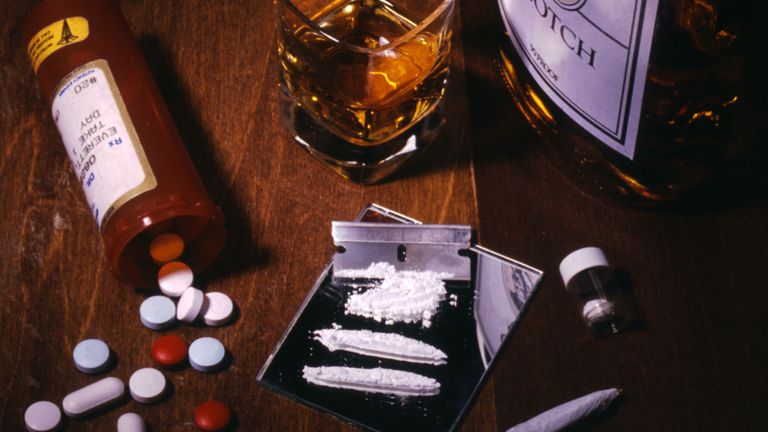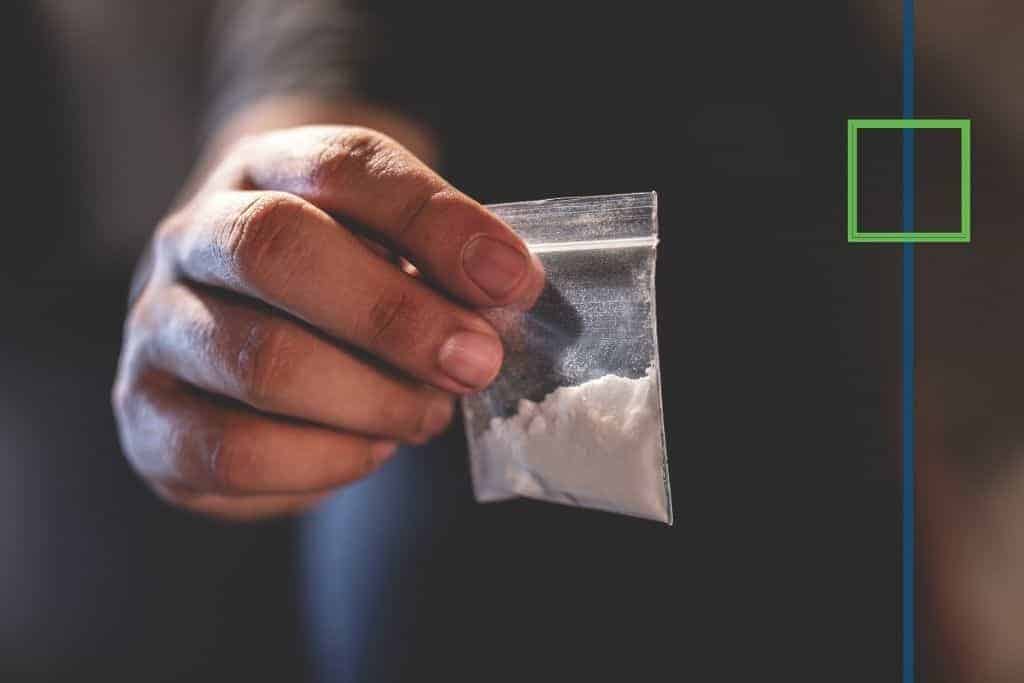Sex with Cocaine
Euphoria, heightened awareness, and increased sensory stimulation are just some of the reasons why people believe sex on cocaine is more pleasurable. Additionally, this drug often leads to increased energy and confidence. Coupled with an increased sex drive from cocaine use, a person is more likely to engage in sexual activity. Individuals who use cocaine have reported that sex on cocaine lasts longer and that orgasms are more intense. These positive symptoms tend to wear off as quickly as the effects, and there are several negative consequences associated with cocaine use and sex.

The Negative Consequence of Sex and Cocaine
Some problems may arise with sexual activity and cocaine use. Whether intentional or not, using cocaine during sexual activity can be dangerous.
Unsafe Sex and Cocaine
Impulsivity is an effect of cocaine, and about sexual activity, research has shown that individuals on cocaine are less likely to use a condom than individuals who are not unless the condom is immediately available. High levels of cocaine over some time may also result in a person being unable to satisfy sexual desire, which can lead to unsafe sexual activities, multiple partners over a short period, and hypersexuality. Cocaine has also been linked to increased replication of HIV in the blood.
Sexual Assault And Cocaine
Obtaining consent or assuming perceived consent can be a problem when a person is under the influence of cocaine. The impulsivity and sexual desire from cocaine use can cloud the judgment of the person seeking sexual activity. If both individuals are high on cocaine, engaging in sex can be deemed illegal in the eyes of the law. This is because neither party can consent to sexual intercourse while on cocaine.
Rough Sex On Cocaine
Cocaine numbs the body and relieves pain. This can be dangerous when combined with sexual activity. A person may not even realize they are being too rough due to the analgesic nature of cocaine. Rough sex can increase the chances of contracting sexually transmitted infections (STIs), especially if there is no condom (or it breaks) if any of the delicate membranes tear, and blood or other bodily fluids are present.

Get Your Life Back
Find Hope & Recovery. Get Safe Comfortable Detox, Addiction Rehab & Dual Diagnosis High-Quality Care.
Hotline(844) 597-1011Cocaine and Erections
Does Cocaine Cause Erectile Dysfunction?
According to the National Center for Biotechnology Information (NCBI), Sexual dysfunction is not uncommon in alcoholics and in cocaine users. 40 to 50% of alcoholic men were suffering from erectile dysfunction and 5-10% had retarded or inhibited ejaculation. Thirty to 36% of cocaine abusers reported erectile dysfunction. Alcohol abuse frequently develops along with cocaine dependence, and the reverse is also common.
Cocaine is a potent dopamine agonist, and chronic cocaine abuse may result in hyperprolactinemia or a dopamine deficiency with sexual dysfunction. Chronic cocaine addiction or alcohol abuse often leads to decreased libido and performance. In addition, acetylcholine turnover usually increases when dopamine is depleted. Therefore, cocaine- and alcohol-induced catecholamine depletion may activate acetylcholine, which further contributes to hyperprolactinemia and sexual dysfunction. In addition, abuse of these substances alters serotonin, acetylcholine, hormones, and other neuroendocrine functions.
Cocaine, Sex, & Women
Women who engage in sex high on cocaine are at risk for STIs, unsafe sex, and unwanted pregnancy. In some cases, cocaine causes infertility as well. Cocaine use can not only change a woman’s menstrual cycle but also can stop ovulation and damage the fallopian tubes. This can result in infertility. Even after a woman stops abusing this drug, permanent changes to hormones due to cocaine use can also result in problems with conception.
Cocaine use during pregnancy can cause seizures, migraines, premature birth and in some cases, the placenta can detach from the uterine wall, called placental abruption. Stillbirths and miscarriages occur at higher rates in women who use cocaine during pregnancy. Cocaine use in men has also been linked to lower sperm count as well as priapism, or prolonged erection. Both of these can result in issues with fertility and increase the need for medical care.
Get Help. Get Better. Get Your Life Back.
Searching for Accredited Drug and Alcohol Rehab Centers Near You?
Even if you have failed previously and relapsed, or are in the middle of a difficult crisis, we stand ready to support you. Our trusted behavioral health specialists will not give up on you. When you feel ready or just want someone to speak to about therapy alternatives to change your life call us. Even if we cannot assist you, we will lead you to wherever you can get support. There is no obligation. Call our hotline today.
(844) 597-1011Can the Sexual Side Effects Be Reversed?
Damage from cocaine and other substance abuse seems to be permanent. A recent study examined 905 men to observe the long-term effects of drug abuse on sexual functioning. The substance-dependent group included 549 men, and the other 356 were controls. The men in the control group did not use drugs, and the researchers compared their sexual functioning against the men in the substance use group.
Men in the substance dependence group showed impaired sexual functioning that lasted even after they stopped using the drug. When the researchers examined the men two weeks after abstinence (stopped using the drug entirely), their sexual functioning stayed decreased. The men were surveyed again after one year, and they still had poorer sexual functioning than the control group. Drug or cocaine use causes permanent sexual side effects if it goes on too long. The best way to prevent permanent sexual damage is to stop using cocaine.

After prolonged use, cocaine can alter the nervous system, leading to permanent erectile dysfunction. Men may even start to see orgasm problems due to the acetylcholine deficiency in the sympathetic ganglions and adrenal medulla. Cocaine contains toxins that harm healthy cells. Exposure to its chemicals can ruin the penile nerves, leading to severe erectile dysfunction. Erectile dysfunction caused by cocaine will require detox and rejuvenation of the nervous system and endocrine system to experience a full recovery.
First-class Facilities & Amenities
World-class High-Quality Addiction & Mental Health Rehabilitation Treatment
Rehab Centers TourRenowned Addiction Centers. Serene Private Facilities. Inpatient rehab programs vary.
Addiction Helpline(844) 597-1011Proven recovery success experience, backed by a Team w/ History of:
15+
Years of Unified Experience
100s
5-Star Reviews Across Our Centers
10K
Recovery Success Stories Across Our Network
- Low Patient to Therapist Ratio
- Onsite Medical Detox Center
- Comprehensive Dual-Diagnosis Treatment
- Complimentary Family & Alumni Programs
- Coaching, Recovery & Personal Development Events
Cocaine Addiction Treatment
The treatment for Cocaine Addiction must address the context of polydrug users in order to be effective. As stated by The National Institute on Drug Abuse in the piece ‘Cocaine Research Report. How is cocaine addiction treated?’, In 2013, cocaine accounted for almost 6 percent of all admissions to drug abuse treatment programs. The majority of individuals (68 percent in 2013) who seek treatment for cocaine use smoke crack and are likely to be polydrug users, meaning they use more than one substance.
Those who provide treatment for cocaine use should recognize that drug addiction is a complex disease involving changes in the brain as well as a wide range of social, familial, and other environmental factors; therefore, treatment of Cocaine Addiction must address this broad context as well as any other co-occurring mental disorders that require additional behavioral or pharmacological interventions.

Treatment for Cocaine Addiction is focused on behavioral interventions that can be used in order to manage this substance dependence in an effective way. There are no medicines that work as substitutes for powder cocaine, crack cocaine and other stimulants of this kind. However, currently, there are some pharmacological advances.
Pharmacological Approaches
Currently, there is no US. Approved medications, drug administration, or a specific diet to treat Cocaine Addiction. However, researchers are exploring a variety of neurobiological targets.
According to The National Institute on Drug Abuse, several medications marketed for other diseases show promise in reducing cocaine use within controlled clinical trials. Among these, disulfiram, which is used to treat alcoholism, has shown the most promise.
Scientists do not yet know exactly how disulfiram reduces cocaine use, though its effects may be related to its ability to inhibit an enzyme that converts dopamine to norepinephrine. However, disulfiram does not work for everyone.
Pharmacogenetic studies are revealing variants in the gene that encodes the DBH enzyme and seems to influence disulfiram’s effectiveness in reducing cocaine use. Knowing a patient’s DBH genotype could help predict whether disulfiram would be an effective pharmacotherapy for cocaine dependence in that person.
World-class, Accredited, 5-Star Reviewed, Effective Addiction & Mental Health Programs. Complete Behavioral Health Inpatient Rehab, Detox plus Co-occuring Disorders Therapy.
CALL(844) 597-1011End the Addiction Pain. End the Emotional Rollercoaster. Get Your Life Back. Start Drug, Alcohol & Dual Diagnosis Mental Health Treatment Now. Get Free No-obligation Guidance by Substance Abuse Specialists Who Understand Addiction & Mental Health Recovery & Know How to Help.
Behavioral Interventions
Many behavioral treatments for Cocaine Addiction have proven to be effective in both residential and outpatient settings. Indeed, behavioral therapies are often the only available and effective treatments for many drug problems, including stimulant addictions. However, the integration of behavioral and pharmacological treatments may ultimately prove to be the most effective approach.
- Cognitive-behavioral therapy (CBT) for addiction: is an effective approach to prevent relapse. This approach helps patients develop critical skills that support long-term abstinence—including the ability to recognize the situations in which they are most likely to use cocaine, avoid these situations, and cope more effectively with a range of problems associated with drug use. This therapy can also be used in conjunction with other treatments, thereby maximizing the benefits of both.
- Therapeutic communities (TCs) for addicts: Drug-free residences in which people in recovery from substance use disorders help each other to understand and change their behaviors—can be an effective treatment for people who use drugs, including cocaine. TCS may require a 6- to 12-month stay and can include onsite vocational rehabilitation and other supportive services that focus on successful re-integration of the individual into society. TCS can also provide support in other important areas—improving the legal, employment, and mental health outcomes.
Regardless of the specific type of substance use disorder treatment, it is important that patients receive services that match all of their treatment needs. For example, an unemployed patient would benefit from vocational rehabilitation or career counseling along with addiction treatment. Patients with marital problems may need couples counseling.
Once inpatient treatment ends, ongoing support—also called aftercare—can help people avoid relapse. Research indicates that people who are committed to abstinence, engage in self-help behaviors, and believe that they have the ability to refrain from using cocaine (self-efficacy) are more likely to abstain. Aftercare serves to reinforce these traits and address problems that may increase vulnerability to relapse, including depression and declining self-efficacy.
Reclaim Your Life From Cocaine Addiction
Cocaine addiction is a serious disease that should not be taken lightly. We Level Up rehab treatment & detox center can provide you, or someone you love, the tools to recover from cocaine addiction with professional and safe treatment. Feel free to call us to speak with one of our counselors. We can inform you about this condition by giving you relevant information. Our specialists know what you are going through. Please know that each call is private and confidential.
Experience Transformative Recovery at We Level Up Treatment Centers.
See our authentic success stories. Get inspired. Get the help you deserve.
Start a New Life
Begin with a free call to an addiction & behavioral health treatment advisor. Learn more about our dual-diagnosis programs. The We Level Up Treatment Center Network delivers recovery programs that vary by each treatment facility. Call to learn more.
- Personalized Care
- Caring Accountable Staff
- World-class Amenities
- Licensed & Accredited
- Renowned w/ 100s 5-Star Reviews
We’ll Call You


